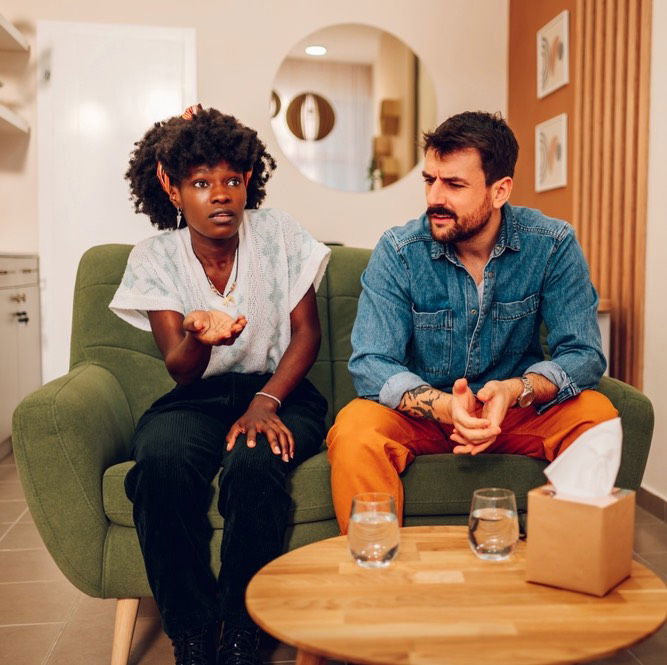
 View 2 slides
View 2 slides How Online Relationship Therapy Can Help You Reconnect and Heal
How Online Relationship Therapy Can Help You Reconnect and Heal


Advertisement
In recent years, online couples counseling has become a true lifeline for many partners feeling overwhelmed, disconnected, or simply stuck. Whether you’re navigating daily tension or something deeper like broken trust, online relationship counseling offers a space to pause, reflect, and try again. What couples often love most about this digital format is its flexibility—no long commutes, no waiting rooms, and the ability to attend from the comfort of home.
But let’s be honest: can a video screen truly match the intimacy and impact of in-person sessions? Can online couples therapy really help couples rebuild what feels broken or buried under years of hurt? Surprisingly, for many, the answer is yes. Let’s break down five key ingredients that can make online marital counseling successful—and five reasons it might fall flat.
5 Factors That Can Boost the Success Of Online Relationship Therapy
- Mutual Motivation
This one might seem obvious, but it’s often overlooked. For online couples therapy to work, both partners need to be genuinely invested. That means more than just showing up—it means showing up emotionally. If one person is all-in while the other treats it like a checkbox, progress stalls. Like any healing process, therapy online only flourishes when both people are committed to listening, opening up, and doing the hard (and sometimes messy) work. Without shared motivation, sessions start to feel performative instead of transformative.
- Timing
You wouldn’t wait until your house is flooding to fix a slow leak, right? The same goes for relationships. When couples pursue online couples counseling early—before resentment builds or communication collapses—they’re far more likely to make lasting progress. Timing can be the make-or-break factor. The longer unresolved issues sit, the deeper they root themselves into daily life. Online marital counseling can still be powerful in tough situations, but early intervention makes the road a lot less steep.
- Therapist Expertise
It goes without saying that the therapist’s qualifications and experience have a profound impact on whether online relationship therapy accomplishes its goals. For example, not all therapists who offer couples counseling have specialized training in relationship dynamics. A professional who is specifically trained in couples therapy has a far better understanding of the complexities involved, along with the tools to guide conversations productively even when the sessions get emotionally charged. Skilled couples therapists know how to diffuse tension, maintain neutrality, and steer both partners toward constructive dialogue. Furthermore, they also recognize how to balance the needs of each partner without appearing biased, creating conditions where both feel heard and validated.
- The Nature of Your Issues
There is no “one size fits all” approach to relationship therapy. Certain issues tend to show quicker progress, while others may require more time, patience, and specialized intervention. Take, for instance, routine concerns such as communication breakdowns, disagreements over parenting, or struggles with intimacy. Solutions are commonly found with the guidance of a skilled therapist and typically involve learning new skills, developing better emotional awareness, and fostering empathy. On the other hand, more complex problems, like breaches of trust, emotional distance, or long-standing resentment, usually take longer to address. Even so, with dedication and the right approach on the part of the therapist, these issues can often be healed.
- The Therapeutic Relationship
A therapist has to be able to connect with both partners, foster trust, and manage the emotional dynamics of sessions in order for the therapy to be successful. A good therapist recognizes when to challenge, when to comfort, and when to allow space for reflection. They create an environment where partners can express themselves without fear of criticism or dismissal. This balance is especially important in online relationship therapy, where reading body language and emotional cues can be more challenging through a screen.